 Petzlover
Petzlover Basenji is originated from Congo but Carpatin is originated from Romania. Basenji may grow 30 cm / 11 inches shorter than Carpatin. Basenji may weigh 67 kg / 147 pounds lesser than Carpatin. Both Basenji and Carpatin has same life span. Basenji may have less litter size than Carpatin. Both Basenji and Carpatin requires Low Maintenance.
Basenji is originated from Congo but Carpatin is originated from Romania. Basenji may grow 30 cm / 11 inches shorter than Carpatin. Basenji may weigh 67 kg / 147 pounds lesser than Carpatin. Both Basenji and Carpatin has same life span. Basenji may have less litter size than Carpatin. Both Basenji and Carpatin requires Low Maintenance.
 The Basenji is an old breeds of domesticated dog and the dog was discovered by Westerners in the Congo region of West Africa in the 19th century. The word ‘Basenji’ means ‘dog of the bush’ the Congo area of Africa. The Basenji falls into the hound category as a hunting dog.
The Basenji is an old breeds of domesticated dog and the dog was discovered by Westerners in the Congo region of West Africa in the 19th century. The word ‘Basenji’ means ‘dog of the bush’ the Congo area of Africa. The Basenji falls into the hound category as a hunting dog.
The dogs were first imported into England and the United States in the 1930s.The Basenji Club of America was started in 1942, and the American Kennel Club recognized the breed in 1943. The new additions also introduced the brindle color pattern to the Western Basenji.
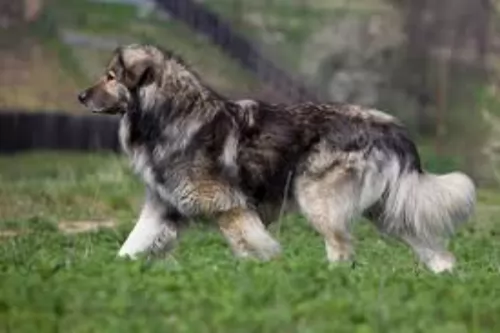 The Carpatin, known also as the Carpathian Shepherd Dog or Romanian Shepherd, is a large breed dog known for his guarding- and watch-dog abilities. Information about these dogs dates back to the 1800s, and much later, in March 1998, fans of the dog founded the Carpathian Shepherd Dogs Club.
The Carpatin, known also as the Carpathian Shepherd Dog or Romanian Shepherd, is a large breed dog known for his guarding- and watch-dog abilities. Information about these dogs dates back to the 1800s, and much later, in March 1998, fans of the dog founded the Carpathian Shepherd Dogs Club.
It is believed that the different Carpathian Shepherd Dog breeds are descendants from dogs that were developed thousands of years ago in Mesopotamia. Documentation of the origins of the dog are rare but it is thought that they are probable descendants of Lupomolossoids. However in 2005, it was finally recognized by the Federation Cynologique Internationale, and in 2006, it was recognized by the United Kennel Club. However, it is still a rare breed outside Romania.
 Described as being catlike, this is an unusual dog to say the least. The reason for this is that he doesn’t have a bark but rather emits a characteristic noise which is likened to a chortel and a yodel. The Basenji is a medium sized dog but he isn’t robust looking. He is a lightly built dog of 40 – 43cm in height and his coat is short and sleek. He has long legs which help with being quick and agile and his shortish tail curls over his back and he has naturally upright ears.
Described as being catlike, this is an unusual dog to say the least. The reason for this is that he doesn’t have a bark but rather emits a characteristic noise which is likened to a chortel and a yodel. The Basenji is a medium sized dog but he isn’t robust looking. He is a lightly built dog of 40 – 43cm in height and his coat is short and sleek. He has long legs which help with being quick and agile and his shortish tail curls over his back and he has naturally upright ears.
As we’ve said, this is an unusual dog, and his wrinkled head gives the dog a quizzical expression. Another strange feature is that not only is this dog breed looked upon as being somewhat primitive, the odd thing about these dogs is that the female only comes into heat once a year. Another somewhat unusual aspect of this self-confident, friendly dog is that unlike other dogs which have a typical dog odour, this canine is odourless, making him a particularly excellent household pet.
His coat comes in different colors and this can be red and white, tan, tan and white as well as black and white or tri-color. These particular dogs are well known for their excellent eyesight and their excellent sense of smell.
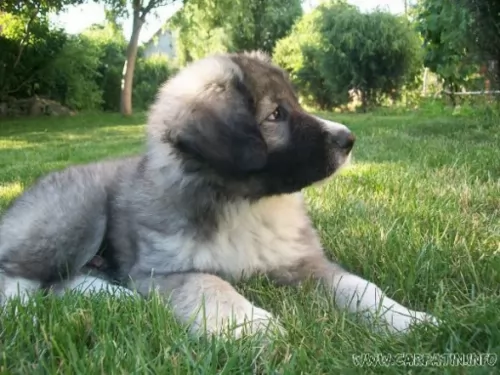 The Carpatin is a large breed dog, standing at 65 to 73cm in height and weighing between 32- and 80kg. The skull of the dog is wide and domed, the ears medium set and floppy. The neck is strong and muscled, the legs strong and straight, the chest deep.
The Carpatin is a large breed dog, standing at 65 to 73cm in height and weighing between 32- and 80kg. The skull of the dog is wide and domed, the ears medium set and floppy. The neck is strong and muscled, the legs strong and straight, the chest deep.
The tail of the Carpatin is long, bushy and high set and his coat is double layered, medium length and pale fawn in color with light grey to black shades being seen as well.
The Carpatin is patient, loving and protective. This is a strong-willed dog who is independent and fairly easy to train as he is intelligent.
It is a good idea to have him trained and socialized as this brings out the best in him. He is a patient and affectionate dog and he’ll get on well with children and tolerate other pets in the home.
They are wary of strangers and become vocal, barking and growling and taking their guard dog role seriously with strangers around.
 The Basenji is an affectionate dog with his family, but he doesn’t take kindly to strangers. If he is socialized when young, he’ll be fairly friendly with other pets in the family too. The Basenji is an intelligent dog but not particularly easy to train, and will require patience as he has a will of his own.
The Basenji is an affectionate dog with his family, but he doesn’t take kindly to strangers. If he is socialized when young, he’ll be fairly friendly with other pets in the family too. The Basenji is an intelligent dog but not particularly easy to train, and will require patience as he has a will of his own.
These short-haired dogs are clean-living with grooming habits similar to a cat. They shed just a little too. They love their human family and will make a good watchdog because they are courageous dogs, ready to defend what they love.
This is an unusual dog, and not everyone will appreciate him as a pet as he is independent, obstinate and determined to do his own thing. If you’re a single person or a family who spends a lot of time outdoors hiking, swimming and hunting – then the Basenji can make an affectionate devoted, loyal companion.
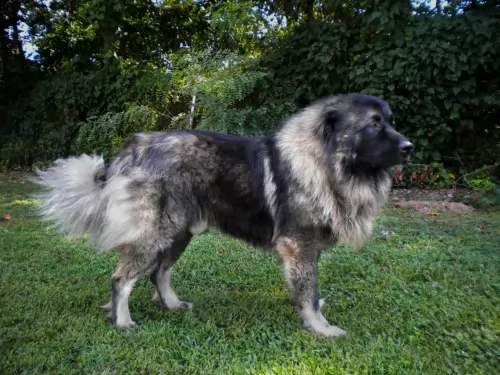 The Carpatin is a big, independent dog who loves his human family. He will guard them too and has all the intelligence and skills to be instinctively alert to danger. Territorial, he makes an excellent watchdog.
The Carpatin is a big, independent dog who loves his human family. He will guard them too and has all the intelligence and skills to be instinctively alert to danger. Territorial, he makes an excellent watchdog.
He isn’t too social around strangers, but with training and socialization he becomes more relaxed and amicable. He responds well to training, especially when he has a firm, strong handler and owner.
Used to being a herding- and working dog, he is happiest when kept busy and isn’t a dog to use essentially for guarding only as he can become aloof and aggressive. Treat him well and have him trained and socialized and you’ll have a wonderful guardian and companion.
 Basenji are generally healthy dogs. As with most other canines, these dogs are also prone to health disorders such as canine hip dysplasia. Check your Basenji for hereditary eye diseases which can lead to blindness.
Basenji are generally healthy dogs. As with most other canines, these dogs are also prone to health disorders such as canine hip dysplasia. Check your Basenji for hereditary eye diseases which can lead to blindness.
This is a kidney disease where your pet will urinate out the protein he so badly needs. He’ll be excessively thirsty and the disease mostly sets in from 4 years of age. It is an inherited kidney disease which can be fatal.
Many health problems can be partially- or totally prevented by the way you raise your puppy, and the lifestyle you provide him with. By doing everything you can to give him good food, a dry, warm space to sleep, lots of activities and exercise and plenty of love and attention, you’ll have less health problems.
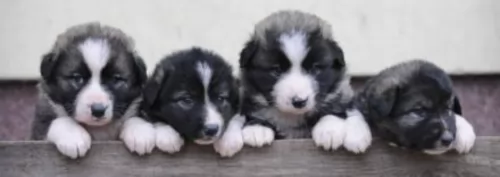 The beautiful Carpatin dog can live to be a healthy 12-14 years if you feed him nutritious foods, provide him with clean water every day, exercise him, give him a dry, warm bed and give him loads of love, attention and care.
The beautiful Carpatin dog can live to be a healthy 12-14 years if you feed him nutritious foods, provide him with clean water every day, exercise him, give him a dry, warm bed and give him loads of love, attention and care.
However every dog can become ill and with the Carpathian Shepherd Dog you certainly want to be aware of ear and eye infections, hip dysplasia and skin disorders.
 Basenjis are fastidious – much like a cat, and they like to be licking at their coats to keep themselves clean. They have a short coat, and this will need to be brushed once or twice a week to get rid of loose hairs and to also stimulated skin oils throughout the coat to keep it shiny and glossy.
Basenjis are fastidious – much like a cat, and they like to be licking at their coats to keep themselves clean. They have a short coat, and this will need to be brushed once or twice a week to get rid of loose hairs and to also stimulated skin oils throughout the coat to keep it shiny and glossy.
As with all dog breeds, the Basenji‘s ears should be checked over and his nails regularly trimmed.
The Basenji needs high quality dog food, regardless of whether you food him commercially manufactured foods or you make your own. If you aren’t sure about how to feed a dog properly to maintain good health, speak to your veterinarian. Dog food needs to be appropriate to the dog’s age and his breed type. Certainly it can be wise to learn what human foods can be dangerous for your dog. Clean, fresh water from bowls which are regularly cleaned should be accessible at all times.
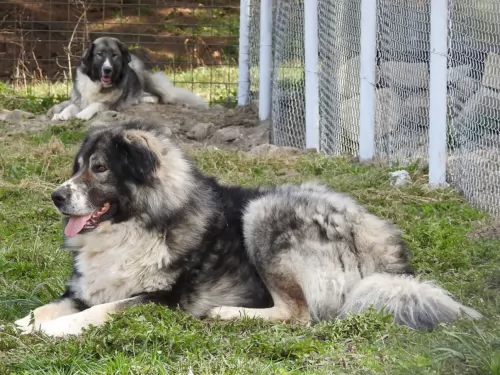 Despite his longish coat, the Carpatin is a low to moderate maintenance dog. To avoid tangles and matting, you’ll need to brush his hair at least twice a week. He won’t however require professional grooming.
Despite his longish coat, the Carpatin is a low to moderate maintenance dog. To avoid tangles and matting, you’ll need to brush his hair at least twice a week. He won’t however require professional grooming.
Dogs with floppy ears will need to have the ears checked to ensure they remain fee of moisture and wax buid-up. The ears can be easily infected when left uncleaned. The nails and teeth should also be checked. Canine toothpaste and brush can help to prevent plaque build-up which can cause gum disease and tooth decay. Not only that, dental disease can lead to other health issues in other parts of the body.
The Carpatin is a medium- to high energy level breed dog and he will therefore need a good amount of exercise to keep him healthy and content. Rope him in to your activities whether you go jogging or cycling. Put him on a leash and take him with – he’ll love it. Dogs who are allowed to be active and part of the family are simply better dogs.
Your Carpatin’s weight, age and activity levels will guide you as to what food is best for him. He needs nutritious food and if you’re unsure how to choose, your veterinarian can advise you on what to look for.
Apart from proteins, your dog needs fats, fiber, carbohydrates, minerals and vitamins. As your dog ages, he or she will go through different life stages, and you want to be sure of ensuring your dog is getting everything he needs to ward of disease and stay happy and healthy.
Make sure your 4-legged canine friend always has a bowl of fresh, cool water available to him.